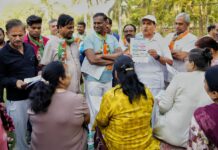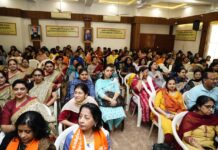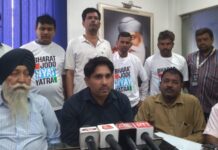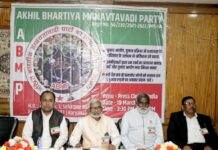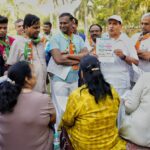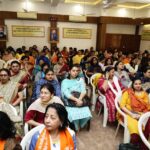K V VENKATASUBRAMANIAN (Senior Journalist)
A post graduate degree holder in Ayurveda can now perform surgeries, including general, orthopedic, ophthalmology, ENT and dental procedures, a gazette notification says.
In the notification issued on November 19, the Central Council of Indian Medicine (CCIM)—the regulatory body for the study and practice of Ayurveda in India–allowed PG degree holders in Ayurveda to receive formal training and practice of “shalya” and “shalakya”.
It states that students will be trained in two streams of surgery and awarded MS (Ayurved) Shalya Tantra — (General Surgery and MS (Ayurved) Shalakya Tantra (disease of eye, ear, nose, throat, head and oro-dentistry).
The council amended the Indian Medicine Central Council (Post Graduate Ayurveda Education) Regulations, 2016. The training modules for surgical procedures will be added to the Ayurvedic studies curriculum.
The move has shocked modern medicine practitioners, and triggered sharp reaction from the Indian Medical Association (IMA).
The IMA has condemned the move. It said, in a letter, that the council has a “dubious reputation” of prescribing modern medicine textbooks to its students.” It warned that mixing modern medicine with other systems or “poaching” disciplines of modern medicine was “foul play”.
The doctors’ association urged the CCIM to develop its own surgical disciplines from its own ancient texts and not claim the surgical disciplines of modern medicine as its own. The IMA said it sees this development “as a retrograde step of mixing the systems, which will be resisted at all costs.”
Following the stiff opposition by the medical fraternity, the Ayush ministry issued a statement on Sunday clarifying the amendment. It said, “Notification is specific to 58 specified surgical procedures and doesn’t allow Shalya and Shalakya PGs to take up any other surgeries.”
The doctors’ association urged the Centre to refrain from posting doctors of modern medicine at Indian medicine colleges. It said students and practitioners of modern medicine were agitated over the matter and asked what would be the sanctity of the National Eligibility cum Entrance Test, the examination for students to study undergraduate medical courses in India, if such “lateral shortcuts” are taken.
Earlier, IMA had condemned the center’s ambitious one nation one system policy in medical education and called it a ‘cocktail of disaster’.
The latest move by the government follows a host of decisions taken during the pandemic. The resolutions had rattled modern medicine practitioners about their future of healthcare. These depict an impending paradigm shift in healthcare from modern medicine to the traditional form.
The government had annulled the Medical Council of India to form the National Medical Commission. In September, it had introduced in Parliament the Commission for Allied and Healthcare Professions Bill, 2020. The bill seeks to allow assorted paramedics (allied and healthcare professionals) to practice medicine independently.




